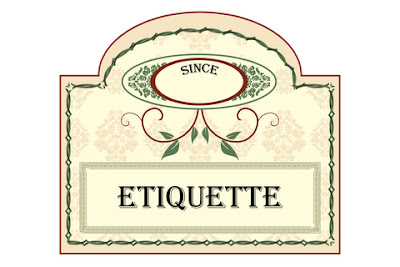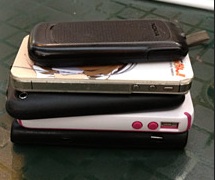ETIQUETTE – DOES IT MATTER ANYMORE?
Etiquette – what is it all about? Many people think that it’s all about stuffy old rules of behaviour that are no longer relevant in today’s competitive workplace. There are times when I observe the aggressive or inconsiderate way some behave and I feel nostalgic for the time when good manners were expected from children, teenagers and adults alike. Are the rules that are socially prescribed so intrusive that individuals feel they will stifle their sense of individuality and freedom of expression?
I believe that the concept of etiquette is essential, not only in social situations but particularly in business. Communication has changed dramatically with technology and social media and there are times when what is appropriate and what is not just isn’t clear anymore. Facebook, Twitter, Linked In and other social media sites have created a world in which rules of what is considered to be appropriate etiquette are constantly being rewritten.
What is etiquette? It’s not about rules and regulations, it’s about making people feel good. It’s about how to behave in social and business situations to ensure a level of comfort for all concerned. It’s a matter of respect towards others, their opinions, their culture, and their expectations.
Here are a few suggestions to help you navigate the world of basic business etiquette:
1. Remember My Name
Most people understand the importance of developing and maintaining good working relationships with key clients, customers, potential customers and senior management. It’s equally important to develop and maintain positive business relationships with our colleagues and junior staff members. Acknowledge what they do, show respect regardless of their roles.
Don’t forget how good you feel with someone recognizes your efforts, or appreciates something you do and, even more importantly, remembers your name! Make others feel good too. Many spend a lot of time ‘managing upwards’ – it’s important to take a step back and appreciate those who are an integral part of the smooth running of the business as a whole.
2. Thank You Notes
As a career management and career transition coach, I am often surprised at the reaction of clients when I suggest that they send a thank you note after attending an interview. Many have told me that they hadn’t thought to do so. But the art of the thank you note, handwritten or via email should never die. I am particularly impressed if I receive a thank you note or card, handwritten, on nice stationery. Call me old-fashioned but it always makes me feel good and I always remember the sender favourably.
Differentiate yourself by taking the time to write a note of thanks to potential new business partners, customers or hiring managers after a meeting. This will reflect well on you and also on your business.
3. Be Discrete
After a business meeting, if you are with a colleague or business partner make sure you don’t discuss what transpired, or your opinion of the meeting, in the lift when leaving that office. Whether it was a favourable meeting or a challenging one, keep your opinion to yourself until you are out of the building.
4. Know Where Your Focus is … Not Where Your Phone is
We can all probably admit to being distracted due to technology. We have so many devices to keep us busy – mobile phones, smart phones, iPads, tablets – they enable us to check emails, receive text messages, read updates on Facebook, etc. anytime, anywhere. They make us feel important, indispensable, efficient and productive. When it comes to meetings, lunch or dinners, having those devices around and switched on is simply rude. It’s impossible to be completely ‘present’ if we are attached to our Blackberry or iPhone. This has become such a problem that there has been a game invented to prevent this during social dinners. It’s called Phone Stacking (also known as ‘Don’t be a Di*k During Meals.’)
This was invented by Brian Perez, a dancer from San Francisco to curb the anti-social practice of checking your phone during meals. The rules are: before sitting down to a meal, each guest rids themselves of their mobile device and stacks it in a pile with the others. Then the diners are free to talk to each other and focus on the interaction of being together. The first person to crack and reach for their phone has to pay the bill. This is a great way to ensure each guest stays attentive to one another!
5. You’re Not Simon Cowell so Don’t Judge
We can’t help it. Some time or another we make judgments about others. However, the key to etiquette is not to criticize others. Acknowledge that most people try their best and even if you disagree with how a situation is tackled, recognize the effort. You are only responsible for yourself, not to judge others on what you believe is right. It’s important to be considerate enough to recognize that everyone liked to be accepted by their peers in business and social situations.
Etiquette is not an antiquated way of behaviour. It’s a positive way to behave. If you are not sure how to behave, whenever you are about to do or say something, ask yourself, “Will this make the other person feel comfortable?” If the answer is, “No,” then consider what can you do, or what can you say that will get the job done respectfully. Does your behaviour make others feel appreciated and respected? If so, you are a great role model!
If you’d like to find out more about business etiquette or would like to be coached for success, email jane@janejacksoncoach.com or visit www.janejacksoncoach.com and find out what we can achieve together!





